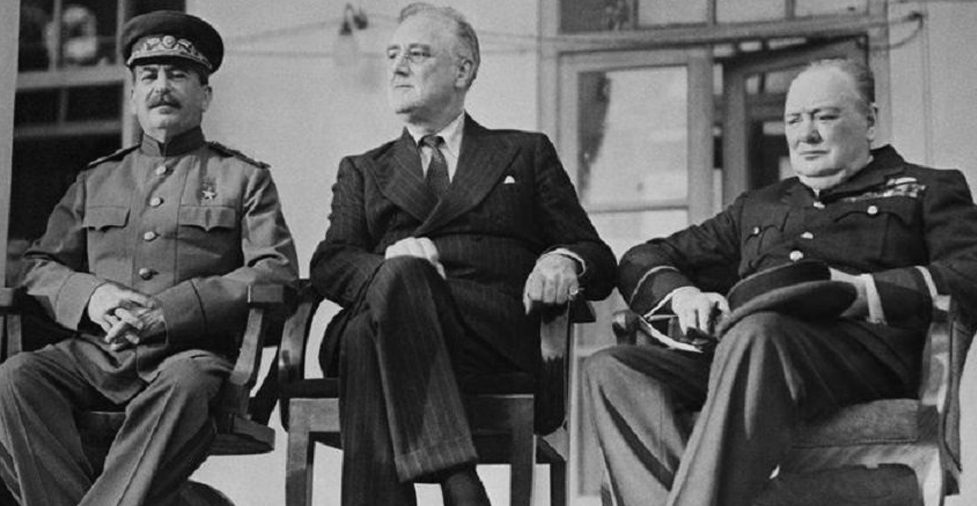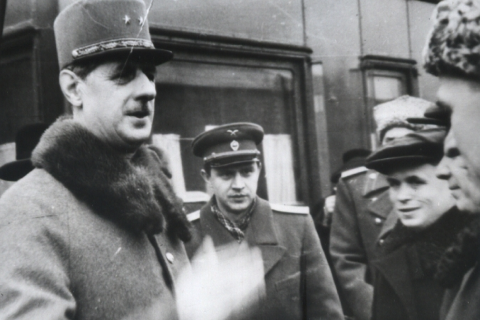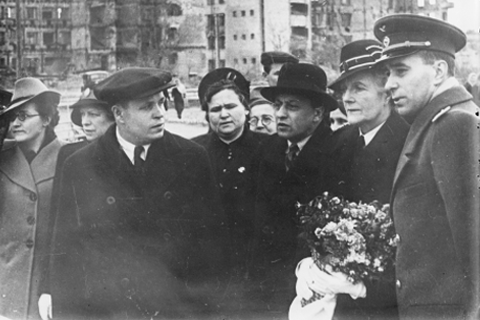The Victory of the Red Army had changed the global balance of power increasing the political and military influence of the Soviet Union and its Military Forces.
The world press could not stress enough the importance of the Victory that had become a turning point of the war and the first step on the way to the defeat of the Nazi Germany.
1942—1943
The success of the Red Army’s offensive in 1942-43 and heavy casualties suffered by the Nazi troops had rapidly undermined the economic, military and political image of the Nazi Germany, which led to the drastic change in the world power balance shifting it towards the Allies of World War II. Germany and its satellites found themselves in the midst of a crisis. Italy was on the brink of a military, political and economic disaster and its general public was becoming more and more agitated by the Italian-German alliance. The loss of its position as a leading member of the Axis powers and strong attacks of the Soviet troops only added to the critical situation inside the country and paved the way for the disintegration of the Italian-German Axis.

The change in the situation on the Soviet-German front after the defeat of the Nazi troops and the army of German satellites in Stalingrad had led to the aggravation of the political situation in Hungary and Romania and not only had a great impact on the position of Finland in this war, but also prevented Japan and Turkey from openly going against the Soviet Union.
The result of the defeat of the Nazi troops in Stalingrad was a significant deterioration of the position of Germany on the global stage. It was pushed to the sidelines and the alliance of the fascist states started falling apart.


June 24, 1984.
The Victory on the Volga River had a great impact on the Resistance movements in Europe, Eastern and South-Eastern Asia. Partisans troops were turned into Liberation armies in Yugoslavia, Albania and Bulgaria and patriotic anti-Nazi front in Romania. The partisan movement was also getting stronger in such countries as Czechoslovakia, France, Belgium, Italy, Norway and Denmark. In Greece, Albania, Yugoslavia and the Northern Italy the partisan movements were winning back large territories that had been occupied by the enemy. The resistance against Japanese occupants was also growing in China, Burma, Indonesia, Malaya and the Philippines.
Thus, the Victory of Stalingrad had a profound impact on both the course of the World War II and the international relations by shifting the global balance of power in favour of the United Nations, facilitating the growth of alliances and bringing the war to an end.
The world leaders of that time spoke highly of the great Victory on the Volga River and praised the heroism of the Soviet people.


29 November 1943
On November 29, 1943 during the Tehran Conference, Winston Churchill declared: “Stalingrad has become a symbol of courage and resilience of the Russian people and at the same time a symbol of the greatest human suffering. This symbol will last for centuries. It is necessary that future generations could see with their own eyes and feel all the greatness of the victory won at the Volga and all the horrors of the extermination war that was raging there”.
General Charles de Gaulle stated: “I would like to pay tribute to Stalingrad and point at the lesson it taught us. Stalingrad is not just a symbol of victory, but it is also a great example of what allies can do, when they unite against Germany. Never again will Germany go against democratic countries”.
13 September 1942
— 31 January 1943
“In the name of the people of the United States of America, I present this scroll to the city of Stalingrad to commemorate our admiration for its gallant defenders whose courage, fortitude, and devotion during the siege of September 13, 1942 to January 31, 1943 will inspire forever the hearts of all free people. Their glorious victory stemmed the tide of invasion and marked the turning point in the war of the Allied Nations against the forces of aggression,” says the Stalingrad scroll sent by Franklin D. Roosevelt, President of the United States of America.


